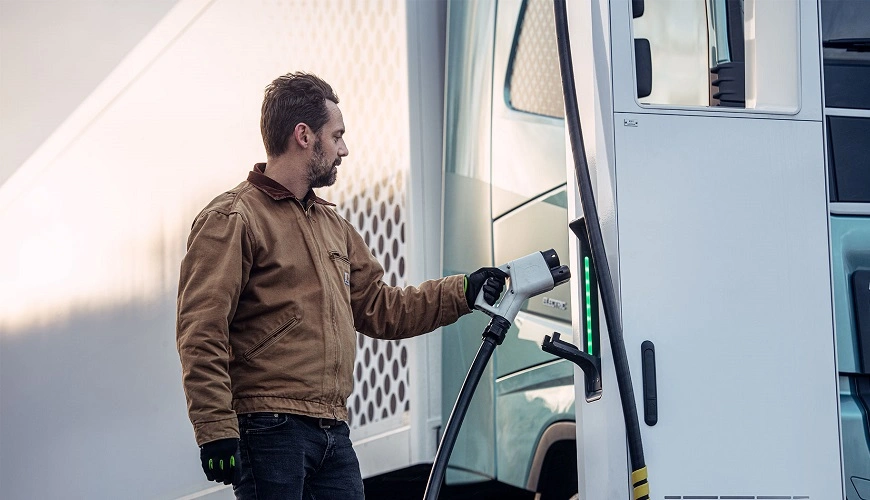Erik Björk, Senior Manager of Road Freight Decarbonization at Climate Group, believes that there are two interconnected themes regarding charging infrastructure that should be addressed to drive the development of electromobility.
Firstly, Björk highlights the potential benefits of establishing a global standard in charging infrastructure.

Secondly, the Senior Manager asserts that strengthening electrical grids is a “priority”.
This arises from the fact that other sectors, such as the industrial sector, are also shifting towards electrification.
“Concerning this issue, people are quite concerned about grid capacity,” Björk states to Portal Movilidad España.
He expands, “This is happening both in Europe and in India, especially now that we are adopting electric technology in both the medium and heavy-duty segments.”
On the other hand, it’s worth mentioning that the organization acknowledges that it is ‘fairly common’ for roads to lack grid connectivity.
“We recognize that there is a lot to be done in this area,” the Senior Manager affirms within Climate Group.
If this situation is not addressed, Björk warns of a risk if European Union member countries aim to add zero-emission units to the vehicle fleet, especially in the cargo and passenger transport segments.
“We lack ambitions when it comes to heavy-duty transport. Many stakeholders are interested in its adoption, but this is an aspect that could become an obstacle,” Björk explains.
What is the role of Climate Group in electromobility?
Climate Group is a non-governmental organization that aims to take climate actions (alongside businesses and the public sector) in different countries around the world.
It seeks to act as a bridge between corporations, policymakers, and the members of its networks to reduce carbon footprint through various initiatives.
For instance, Climate Group has a program with the participation of 270 member states and regions from across the globe.
“We primarily focus on electric vehicles, especially in the heavy-duty segment. We also conduct research on green hydrogen,” says Björk.
He adds, “Within the transportation sector, we have two networks comprising more than 100 companies.”
These companies commit to phasing out internal combustion engine vehicles by 2030 for the light-duty segment, by 2035 for public-use vehicles, and by 2040 for the medium and heavy-duty segment.
What is the place of women in electromobility?
During the International e-Mobility Summit 2023 organised by Mobility Portal, Björk is asked about the role of women in the electric automotive industry.
Regarding this, the representative of Climate Group responds:
“In my opinion, the brightest people I have around me are women, which makes them play an indispensable role in this transformation.”
However, he observes that there is still a lack of women’s presence in various conferences on logistics and transportation.
In this regard, Björk acknowledges that society should be “more equitable.”
“We would all benefit more if women held more prominent roles,” highlights the Senior Manager.
Next, Erik Björk’s participation in the panel titled “Role of leading associations for the promotion of electromobility”:







